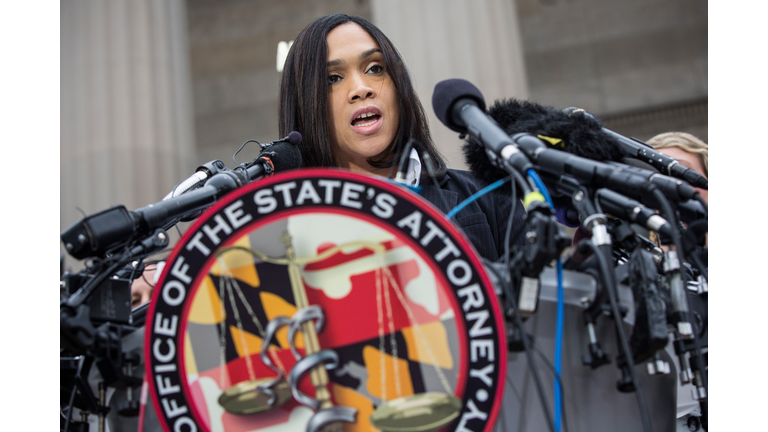By Maria-Paula
After Philadelphia’s District Attorney Larry Krasner in 2018 quit prosecuting marijuana, marijuana drug equipment possession and prostitution, Baltimore City State Attorney Marylin J. Mosby followed suit in March 2020. Non-violent offences including sex work, drug and paraphernalia possession, trespassing, urinating or defecating in public as well as minor traffic offences will no longer be prosecuted in the city. This was seen as a choice that marked the beginning of reforms for Baltimore’s criminal justice system while curbing the spread of Covid 19 in correctional facilities.
With a significant drop in arrests by 18 per cent over the last year, the number of individuals entering the criminal justice system also recorded a 39 per cent decline while addressing the systemic inequity of mass incarceration. Between March 2020 and March 2021, violent crime reduced by 20 percent, and property crime reduced by 36 percent in the city according to Mosby.
The intention to end prosecution of nonviolent crimes is not a new idea, as other cities have taken similar action.
Baltimore being home to over 1,000,000 people, predominantly Blacks, these numbers are nothing to keep far away from since the war on drugs has discriminated heavily against people of color.
If administered correctly and thoroughly, the policies might be a primary step towards valid reform in criminal justice proceedings hence the deconstruction of recent mass incarceration.
Refusal to prosecute however does not indicate things are going to be different instantly. Violent crime remains significant in Baltimore which tells of deeper social, economic and political issues in need of remedies.
About a year ago, in an effort to slow the spread of COVID-19, the city’s State’s Attorney’s office collaborated with public health officials to reduce the numbers of inmates in correctional facilities. As a result of the program’s advancements the city’s crime rates, have gone down.
It is not clear yet whether the sharp decline in imprisonment rates in Baltimore was a function of Mosby’s policies, or an outcome of COVID-19 related shutdowns.
Baltimore has also decided to employ a more “common sense” strategy in tackling the vices by treating them as psychological rather than criminal while giving residents access to help and treatment services for substance abuse.
Local organizations like NAACP, Risk reduction and Community mobilization, the Sex Workers Promoting Action, who support sex workers and Baltimore Crisis Response Inc., specialists in psychology and substance use welcomed the announcement.
However, it is still unknown how local programs are going to address the predicted upsurge of referrals, which hints to the necessity for more government-funded programs.
On the contrary, Brandon Soderberg, a Baltimore-based journalist and author felt the war on drugs is not over in Baltimore. Despite originally announcing that her office would decline to prosecute the attempted distribution of drugs, Mosby’s strategic policy and planning director said that the office will still charge drug dealers caught with evidence such as scales, packaging materials or large amounts of drugs.
In a twist, on June 24, the Baltimore Police department tweeted that, in collaboration with the SAO, it charged and prosecuted at least five members of a “drug trafficking organization.”
Also, since Mosby’s COVID-19 policy went into effect there were 30 instances in which “possession with intent to distribute” of a controlled substance was charged and not dropped, according a data analyst with Open Justice Baltimore Zack Zwagil. An additional two charges involving marijuana are still being prosecuted.
Even if a person’s charges are finally dropped, individuals arrested for drug custody still face serious hurdles.
It is an enormous breakthrough within the way we relate substance use to psychological states. Incarceration has been used as a tool to end drug abuse and categorized as a problem undeserving attention leaving victims neglected.
In July 2020, The Appeal reported drug possession with the intent to distribute as one of the three most common charges for people denied bond. Therefore, even if prosecutors refused to take up all minor cases, the ongoing truths of policing and detention would persist.
Refusing to prosecute doesn’t mean things will be different instantly.Violent crime remains significant in Baltimore giving a story of deeper social, economic and political issues in need of solutions.
“The state has the job of deciding what they consider a violent crime or not. I always want to break down the words ‘violent crime’ because there are so many violent crimes that are being done against Baltimore citizens [by the state], specifically poor Black ones,” said a local organizer Bilphena Yahwon.
The impact of such a choice in a city suffering from mass incarceration, racism and extensive poverty may also reach cities across the U.S . If Baltimore can dedicate to such reforms, other cities can do the same too.
These reforms don’t force lawmakers to shift patterns on how to transform their cities. Instead, they prompt thoughts on how to restructure the practices of the Baltimore Police and other major cities across the U.S for equity and fair justice for all.
No More Prosecution for Drug Possession and Prostitution in Baltimore



